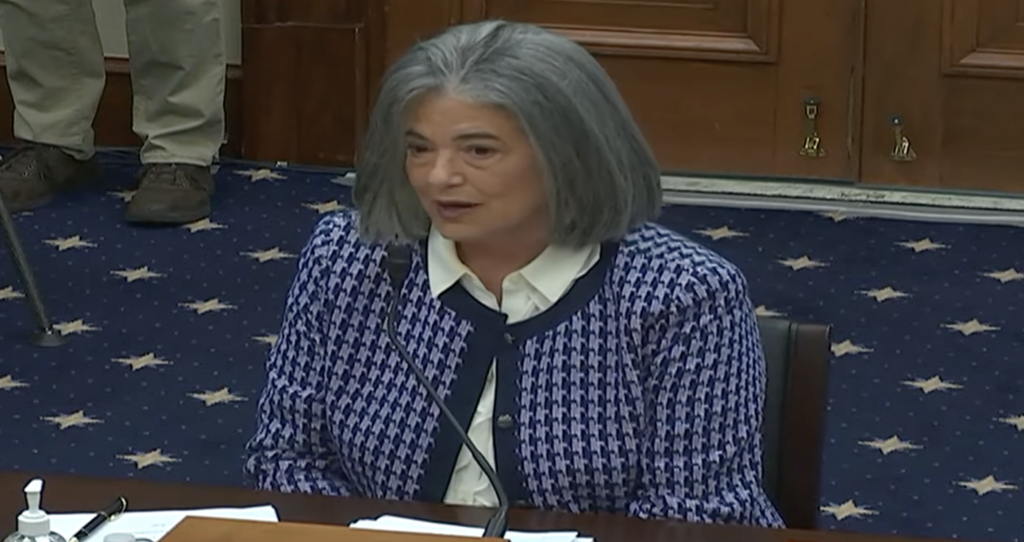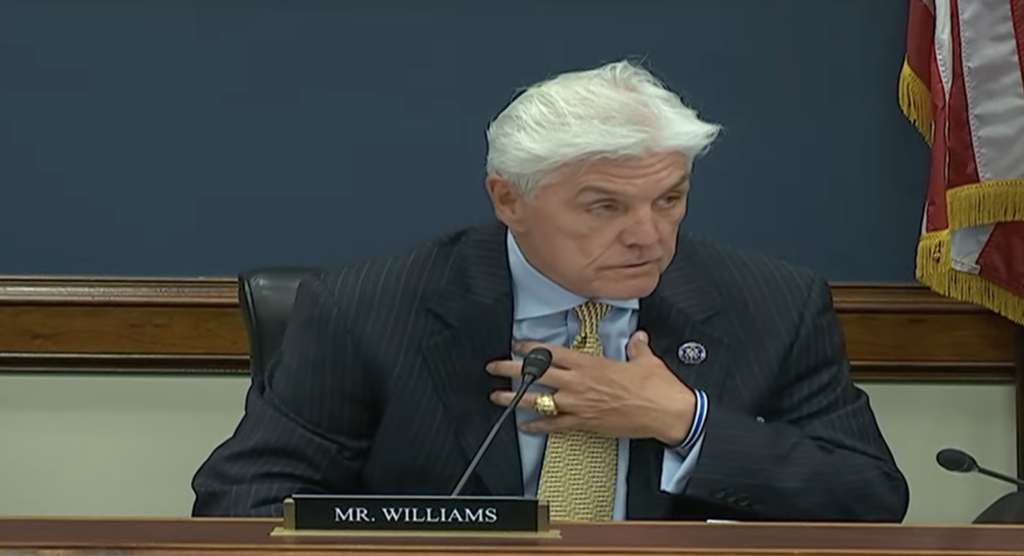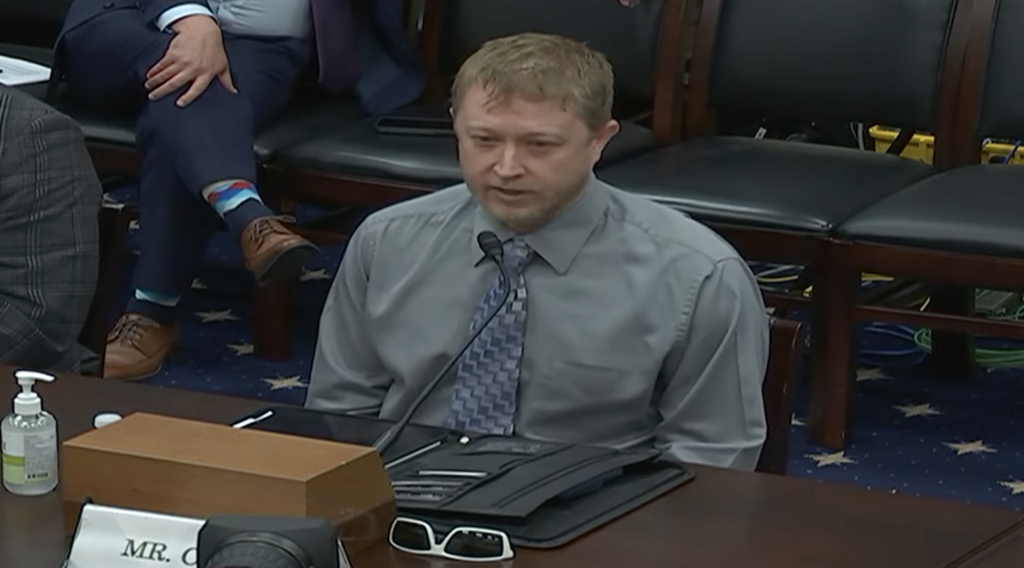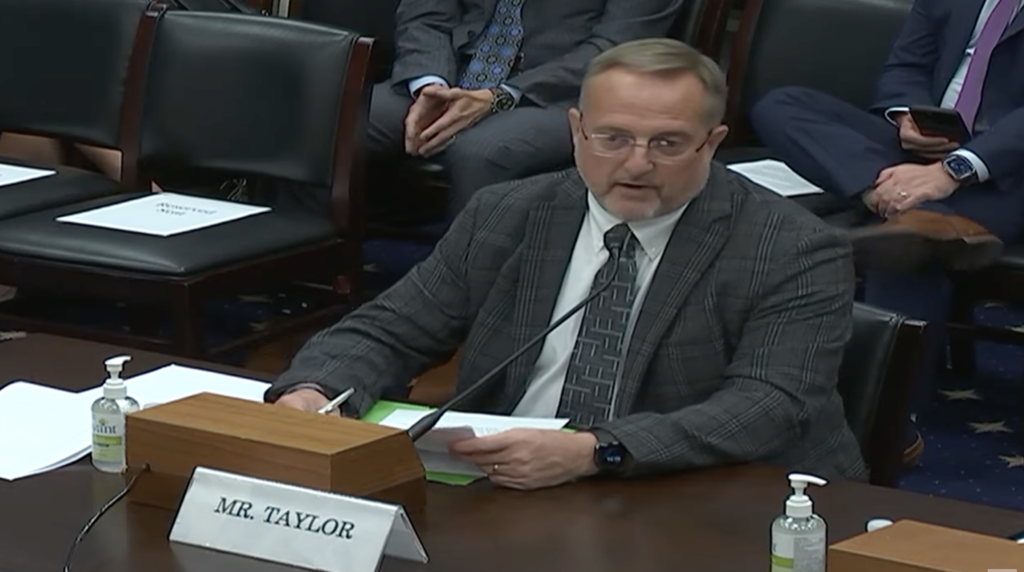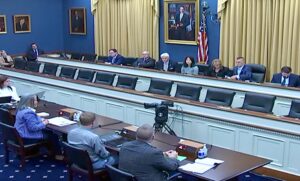
Memorandum between OEMs, aftermarket cited in congressional right to repair hearing
By onAnnouncements
Lawmakers and witnesses wrestled with conflicting goals during a congressional hearing Wednesday on the issue of right-to-repair legislation and its impact on consumer products ranging from cell phones to agricultural tractors.
For nearly two hours, business representatives told the Subcommittee on Underserved, Agricultural, and Rural Business Development about industries’ intellectual property and cybersecurity concerns, and the needs of consumers and third parties to have access to the parts and information required to make repairs.
“The right to repair is alluring in its simplicity. In theory, it seems obvious that if you do buy something, you own it, and you should have the freedom to do what you want with it,” said U.S. Rep. Claudia Tenney (R-N.Y.) ranking member of the subcommittee. “The right to repair, if properly designed, can create a world of consumer choice, competitive pricing, and potential cost savings.
“However, when this issue is examined in full depth, it becomes substantially less black and white,” she said. “Today, many machines are essentially sophisticated supercomputers… they perform seemingly miraculous feats thanks to delicate and complex electronic components integrated with highly specialized, proprietary software. Even with all the possible tools and resources at one’s disposal, attempting to sell, fix, or modify products with electronic components could lead to disastrous results, such as product failure or, even worse, serious injury to the consumer. In addition, these alterations can put the privacy and security of the user at risk.”
Tenney called for “a cautious, measured and well-informed approach” to the issue, and expressed optimism that there’s enough room to find a legislative compromise.
Although the subcommittee indicated that auto repair would be one of the subjects covered during the hearing, titled “Right to Repair and What it Means for Entrepreneurs,” that topic was seldom raised, unless it was to present the 2014 Memorandum of Understanding (MOU) between the OEMs and the aftermarket as a model for legislating other industries.
Gay Gordon-Byrne, executive director of the Digital Right to Repair Coalition, told lawmakers that the right to repair issue is particularly important for underserved rural areas as well as for low-income Americans who cannot afford to simply replace broken items with new ones.
“When I was preparing for testimony [before] the Federal Trade Commission (FTC), I looked at manufacturer policies, and pretty much concluded… that about 90% of the products on the market today are already repair monopolized, meaning that the only option for repair if there is one is through the manufacturer,” Gordon-Byrne said. “So this eliminates all competition.”
The MOU, she said, can provide a template for other industries with very little alteration needed.
“The key to keeping all of this working is to have the option of competition for repair, which we’ve discovered works pretty well using a legislative template that the auto industry began with,” Gordon-Byrne said. The original Right to Repair bill passed by Massachusetts voters in 2012 “rapidly led to an industry an agreement that’s now a national agreement,” she said. “It’s not perfect, but it’s working.”
Gordon-Byrne conducted research for the FTC’s “Nixing the Fix” report, released in May 2021, which found that the MOU had the effect of creating “a broad, if not complete, right to repair in the automotive industry across the United States.”
She told legislators that the Digital Right to Repair Coalition simply copied the MOU in drafting proposed state legislation covering digital consumer products. “I literally sat down and wrote the first bill by taking out the word ‘automobile’ and stuffing in the words ‘digital electronic product.’ And the philosophy is the same. A state can say, ‘Mr. Manufacturer, if you’re going to do business in my state, you must provide fair and reasonable access to the same parts tools, diagnostics and service information that you are currently only providing on an exclusive basis to your dealership.'”
Manufacturers can provide access to repair documentation, she said, without revealing proprietary information, or putting themselves or their customers at risk. “Manufacturers never put secrets in their repair documentation because they would never be secret. They don’t put crypto keys in their repair documentation because that would also get around the internet almost instantly. So what the dealerships and the authorized providers get is actually a very limited set of tools.”
Gordon-Byrne said the MOU has worked well to date.
“We’ve got 10 years of experience with that law. The sky did not fall. People are not driving around on terrible brake systems because the local mechanic fixed them instead of the dealership. They are not losing access to their bank accounts because of some crypto mythology,” she said.
U.S. Rep. Roger Williams (R-Texas), who is a subcommittee member and owner of an auto dealership, cautioned that requiring manufacturers to provide certain types of information could eliminate their incentives to innovate and open the door to data hackers.
“Independents have access to parts. It’s me,” Williams said. “I’ve got millions of dollars worth of parts, and we’ll deliver them to you, we’ll do everything – you’ve got access to parts. And we talked about how complicated [vehicle repair] is. Well, just go to the dealer and get it fixed. Because I know what happens. You bring it to me, I fix it, you mark it up 10%; no problem. Everybody makes a little.”
Williams objected to calls for providing parts and information to third parties “at cost” to “level the playing field.”
“It’s critical we look at this issue from all angles, and proceed with caution before we try to get the government more involved, and quit talking about cost and quit talking about selling for nothing. Because if you’re selling it at cost and selling for nothing, there is no service to anybody – I can’t buy parts, I can’t deliver the parts to you… ‘Profit’ is a really good word. That’s why we’re all in business.”
No representatives of the automotive or aftermarket industries testified before the subcommittee, though the Alliance for Automotive Innovation (AAI), representing the OEMs, submitted written testimony.
“Competition is alive and well in the automotive repair industry,” Garrick Francis, Vice President, Federal Affairs for AAI, wrote. “Consumers have a wide range of options on where to seek service or repair; these include a dealer repair facility, a national chain repairer, an independent repair facility, or individual vehicle owners undertake the repair themselves if technologically inclined. Independent repair facilities currently perform the vast majority of diagnostic and repair work. In fact, over 70 percent of out-of-warranty repair work is performed outside of an automaker’s authorized dealer network. This is the very definition of consumer choice.”
Francis said the MOU was designed with current and future repairability needs in mind. “The existing MOU also had the foresight to recognize automotive industry is constantly evolving, and consciously futureproofed the law. For example, as vehicles become more connected, certain categories of vehicle data may be accessible via telematic data systems. The national MOU contemplated this evolution of the industry and explicitly requires that automakers make telematics information available to independent repairers and vehicle owners if that information is needed to repair a vehicle, available to an automaker’s authorized dealer network, and not otherwise available through another source,” he wrote.
Access to telematic data is at the heart of a federal lawsuit that appears to be headed for a conclusion in Massachusetts. In that case, the AAI is challenging a law passed by the state’s voters in 2020 that requires OEMs to equip all vehicles with “inter-operable, standardized and open access platform” for accessing data, beginning with the 2022 model year. AAI claims that, among other things, the deadline was impossible to meet, and that OEMs could not comply with the law without violating federal safety and environmental laws.
The testimony of other witnesses before the subcommittee Wednesday underscored that the right-to-repair issue is not the same across all industries. Brian Clark, the co-owner of a small independent repair consumer electronics repair shop located in Conway, New Hampshire, said it’s difficult for him to get access to genuine parts, repair manuals, tools, and schematics.
“The paths to becoming an authorized repair facility are far from ideal and generally incredibly invasive to our business and restrictive on what we can do for our customers,” Clark said. “Why does Apple need to see my financials to order parts from them? Why do they need to visit my shop to see what accessories I’m selling to buy parts from them? That’s what’s problematic for a business like mine. It just doesn’t make any sense why they need to have so much control over my business just to get parts.”
Jim Gerritsen, whose family owns an organic potato farm in Aroostook County, Maine, said he relies on older tractors and other farm equipment that have no semiconductor chips in order to avoid having to rely on the manufacturers for repairs.
“We rely upon older equipment going back to the 1970s — equipment that we have repaired and rebuilt ourselves. We would never choose to place ourselves into a vulnerable position of being at the mercy of malfunctioning electronic sensors… When a problem as common and as minor as water condensation in a diesel tank can cause a sudden limp mode activation, say during peak planting or peak of harvest, not only does that place an individual farmer and our livelihood at risk, but it really places the nation’s food security at risk,” Gerritsen said.
He expressed concern with what he sees as “growing monopoly control” of the tractor business. “Right here in Aroostook County, the local John Deere dealership last year, which had been owned for 63 years by a local family, sold out to a company that has 63 John Deere dealerships. That type of concentration I don’t think is correct in a free market economy. And I think that when you have concentrated monopoly power that it works against the interests of citizens.”
Ken Taylor, president of the Ohio Machinery Co., testified on behalf of the Associated Equipment Distributors (AED), an international trade association representing companies involved in the distribution, rental, and support of equipment used in construction, mining, forestry, power generation, agriculture, and industrial applications.
“Right to repair is a simple slogan. However, the policy proposals surrounding the issue are complex, with significant consequences,” Taylor said. The industry in general supports customers’ right to repair their machinery, and distributors provide access to diagnostic tools, repair information, parts, and remote customer support to dealerships, third-party repairers, and customers.
However, “we don’t support unfettered access to critical onboard software and information pertaining to environmental and safety protections, or key operational functions, which is what proposals in various states and Congress would do,” Taylor said. “The tractors we’re selling today are not the same as those sold by my grandfather, or even my father. While customers can complete most repairs to their machinery, government, environmental and safety regulations, as well as technical technological developments that have made equipment more efficient and productive, necessitate restrictions in access to source code and software that ensure key operational functions aren’t modified or disabled.”
Taylor called proposed right to repair legislation “a solution in search of a problem.”
“Anyone can walk into an AED member facility or go online and buy OEM parts for their equipment. There’s no restriction on who can purchase parts, whether it’s an equipment owner, a third party service provider, and equipment operator or a member of the general public,” he said.
Like Williams, he said parts distributors and manufacturers must be allowed to sell at a profit. “There will be no incentive for an equipment dealer to carry parts inventory if the manufacturer or the dealer is forced to sell parts without the ability to make a profit,” he said. “AED members provide customers and third-party repair providers with parts, tools, and other resources to complete the overwhelming majority of equipment repairs. Enacting these proposals will stifle entrepreneurship, and the result will be an unprecedented intrusion by government into the free enterprise system.”
More information
Alliance for Auto Innovation letter to the subcommittee
Judge looks to resolve 2 ‘major outstanding issues’ in Mass. ‘right to repair’ case
Images
The Subcommittee on Underserved, Agricultural, and Rural Business Development meets Wednesday in the Rayburn House Office Building in Washington.
Gay Gordon-Byrne, executive director of the Digital Right to Repair Coalition.
Subcommittee member U.S. Rep. Roger Williams, R-Texas.
Brian Clark, the co-owner of a small independent repair consumer electronics repair shop located in Conway N.H.
Jim Gerritsen, whose family owns an organic potato farm in Aroostook County, Maine.
Ken Taylor, president of the Ohio Machinery Co., who testified on behalf of the Associated Equipment Distributors.
All images via YouTube

